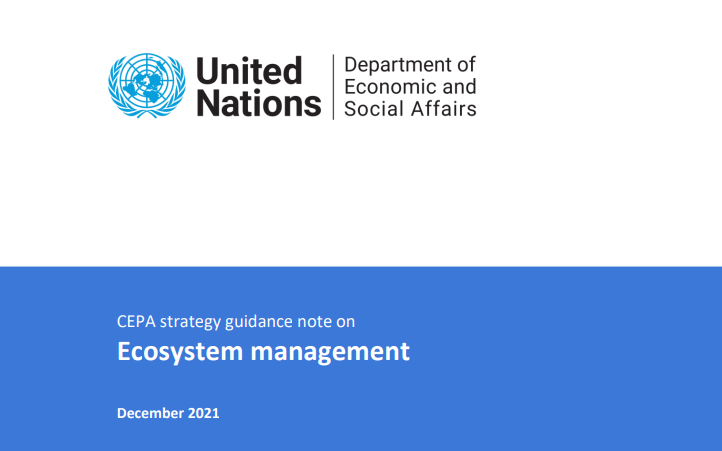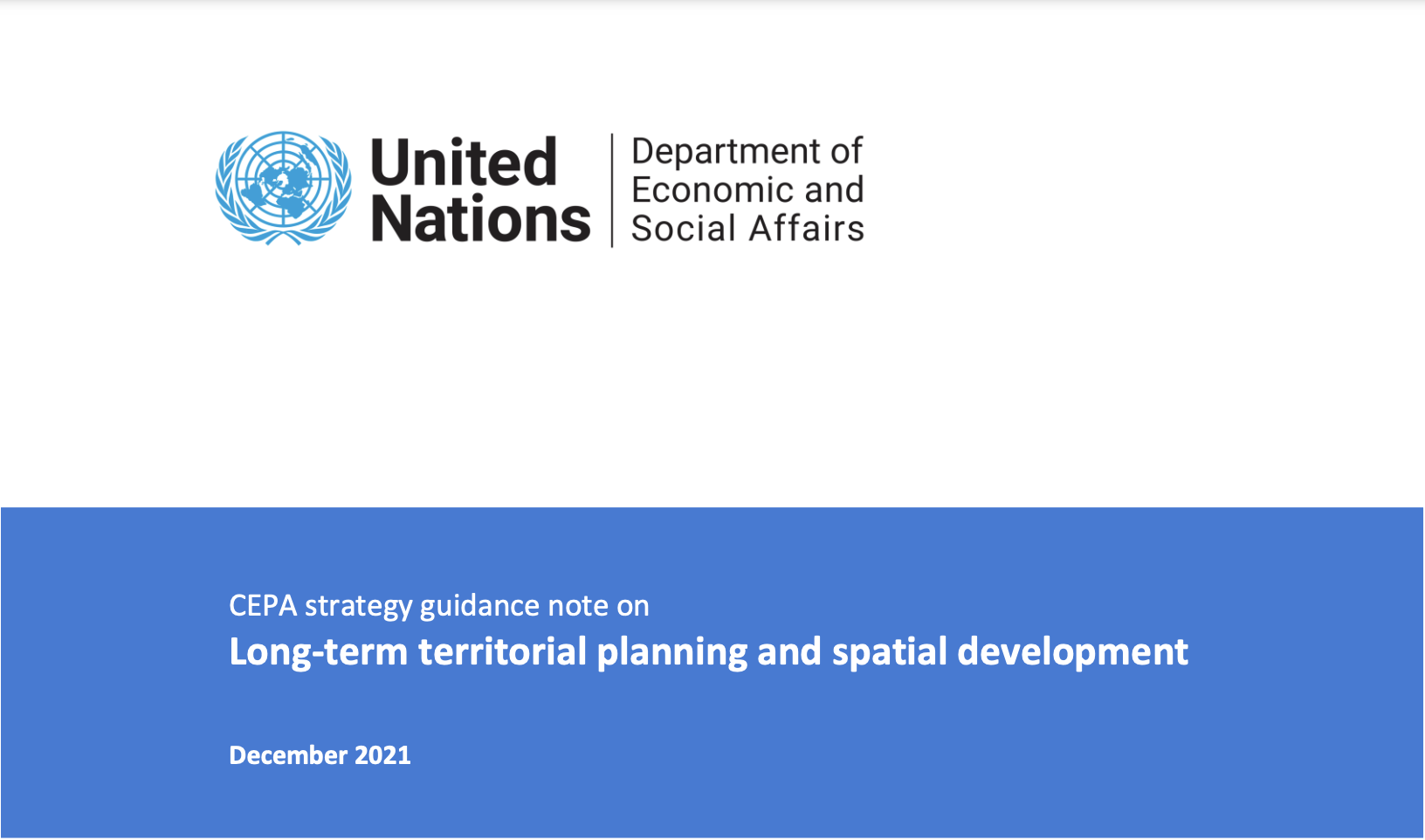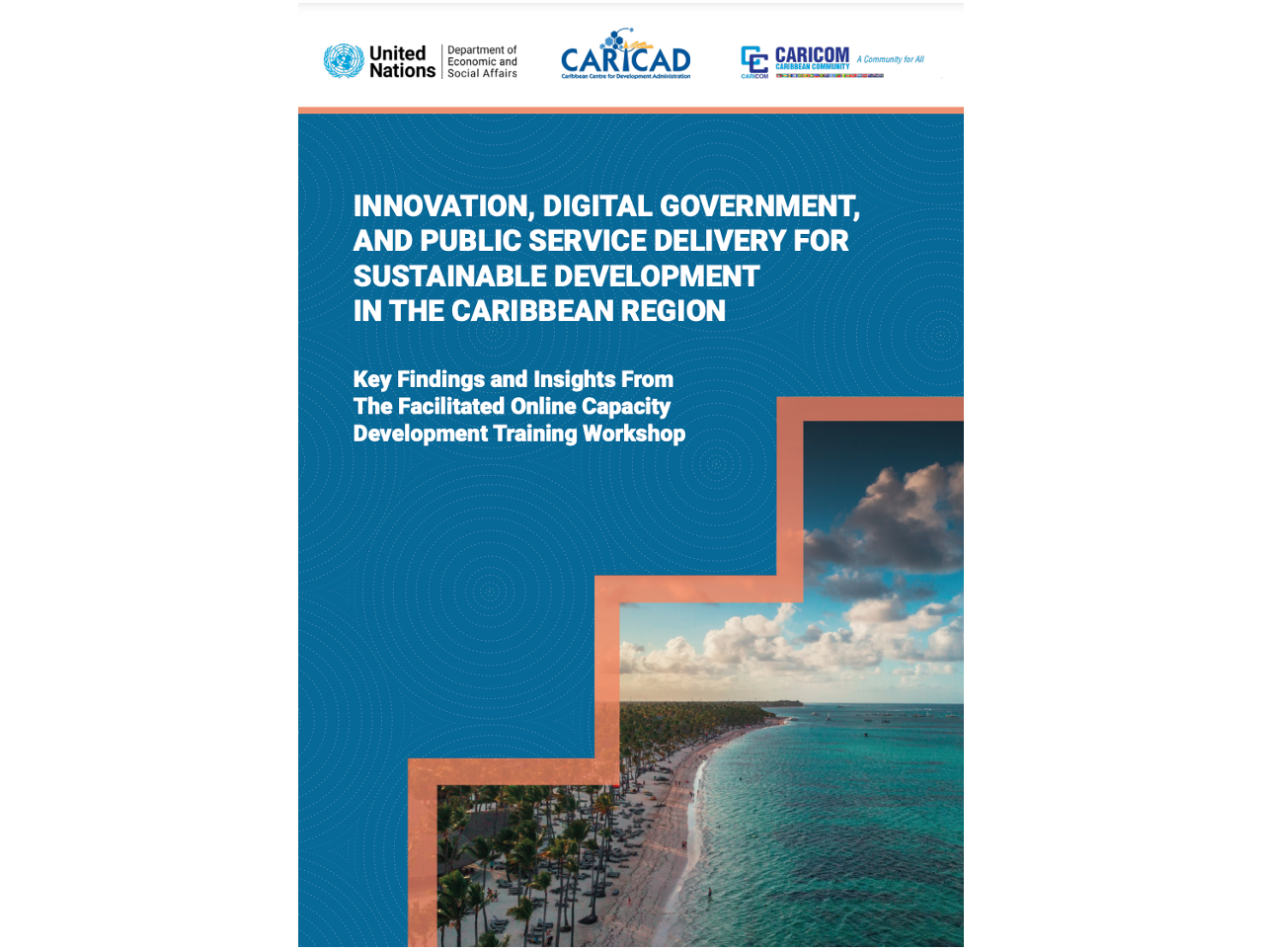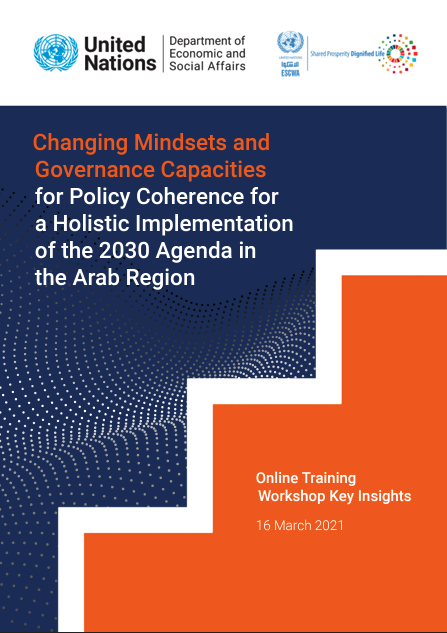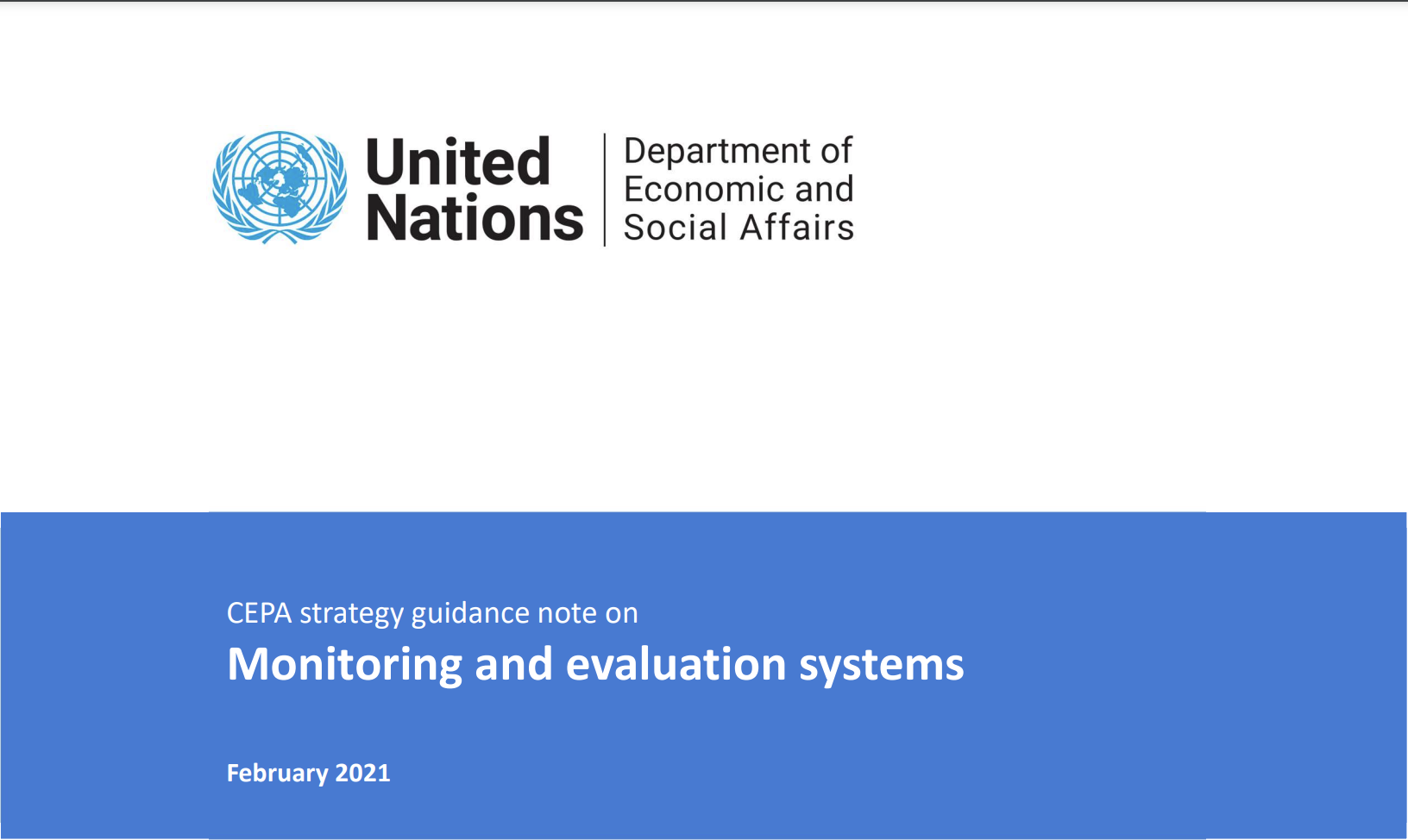| CEPA Strategy Guidance Notes | Principles of Effective Governance
CEPA strategy guidance note on ecosystem management
Ecosystem management involves using ecological knowledge about a particular ecosystem’s structure and function to achieve a desired set of objectives. By setting and working toward appropriate objectives that are grounded in sustainability,…
| CEPA Strategy Guidance Notes | Principles of Effective Governance
CEPA strategy guidance note on long-term territotial planning and spatial development
In reading this guidance note, individuals in government ministries and agencies who are less familiar with the topic will be able to understand the fundamentals. Those who have perhaps taken initial steps in this area with limited follow-through or…
| Capacity Development Reports | Public Service Innovation
2020-2021 Report of Capacity Development Workshops and Pilot Testing of the Curriculum on Governance for the Sustainable Development Goals (SDGs) Toolkits
The 2020-2021 Report of Capacity Development Workshops and Pilot Testing of the Curriculum on Governance for the Sustainable Development Goals (SDGs) Toolkits was prepared by the UN DESA / DPIDG and UNPOG. The Report contains key information about…
| CEPA Strategy Guidance Notes | Principles of Effective Governance
CEPA strategy guidance note on impact assessment for sustainable development
Impact assessment is a structured process for considering the implications of proposed actions for people, communities and the environment, while there is still an opportunity to improve (or, if appropriate, abandon) the proposals.
| CEPA Strategy Guidance Notes | Principles of Effective Governance
CEPA strategy guidance note on fiscal and budget transparency
Fiscal transparency provides oversight institutions including parliaments, supreme audit institutions, and the public with the information they need to hold governments accountable in their management and use of public resources.
| Capacity Development Reports | Participation and Accountability
Report on Transparency, Accountability and Ethics in Public Institutions with a focus on Public Procurement in Kenya
The United Nations Department of Economic and Social Affairs (UNDESA), together with the Kenya School of Government (KSG) and the Kenya Institute of Supplies Management (KISM), co-organized an online training workshop on Transparency, Accountability…
| Capacity Development Reports | Participation and Accountability
Report on Building Transparent, Accountable and Inclusive Institutions from the UNGASS 2021
The United Nations Department of Economic and Social Affairs (UN DESA) through its Division for Public Institutions and Digital Government (DPIDG), together with the Group of States against Corruption of the Council of Europe (GRECO) co-organized a…
| Capacity Development Reports | Digital Government | Public Service Innovation
Report on Innovation and Digital Government for Public Service Delivery
This report summarizes presentations and outcomes of a facilitated online training workshop on Innovation, Digital Government and Public Service Delivery for Sustainable Development, which was jointly organized by the United Nations Department of…
| Capacity Development Reports | Sound Policymaking | Transformational Leadership and New Mindsets
Report on Changing Mindsets and Governance Capacities for Policy Coherence for a Holistic Implementation of the 2030 Agenda in the Arab Region
This report summarizes the key messages that were conveyed by facilitators, participants and external speakers during the online training workshop on “Changing Mindsets and Strengthening Governance Capacities for Policy Coherence for a Holistic…
| Capacity Development Reports | Public Institutions
2021 Snapshots of Capacity Development Activities
This report provides a snapshot of the capacity development activities undertaken by UN DESA’s Division for Public Institutions and Digital Government (DPIDG) in 2021. During 2021 DPIDG:
Organized 30+ capacity development activities with 79…
| CEPA Strategy Guidance Notes | Principles of Effective Governance
CEPA strategy guidance note on monitoring and evaluation systems
The United Nations Committee of Experts on Public Administration (CEPA) has developed a set of principles of effective governance for sustainable development. The essential purpose of these voluntary principles is to provide interested countries…
| CEPA Strategy Guidance Notes | Principles of Effective Governance
CEPA strategy guidance note on strengthening of national statistical systems
The United Nations Committee of Experts on Public Administration (CEPA) has developed a set of principles of effective governance for sustainable development. The essential purpose of these voluntary principles is to provide interested countries…
 مرحباً بكم في الأمم المتحدة
مرحباً بكم في الأمم المتحدة 
